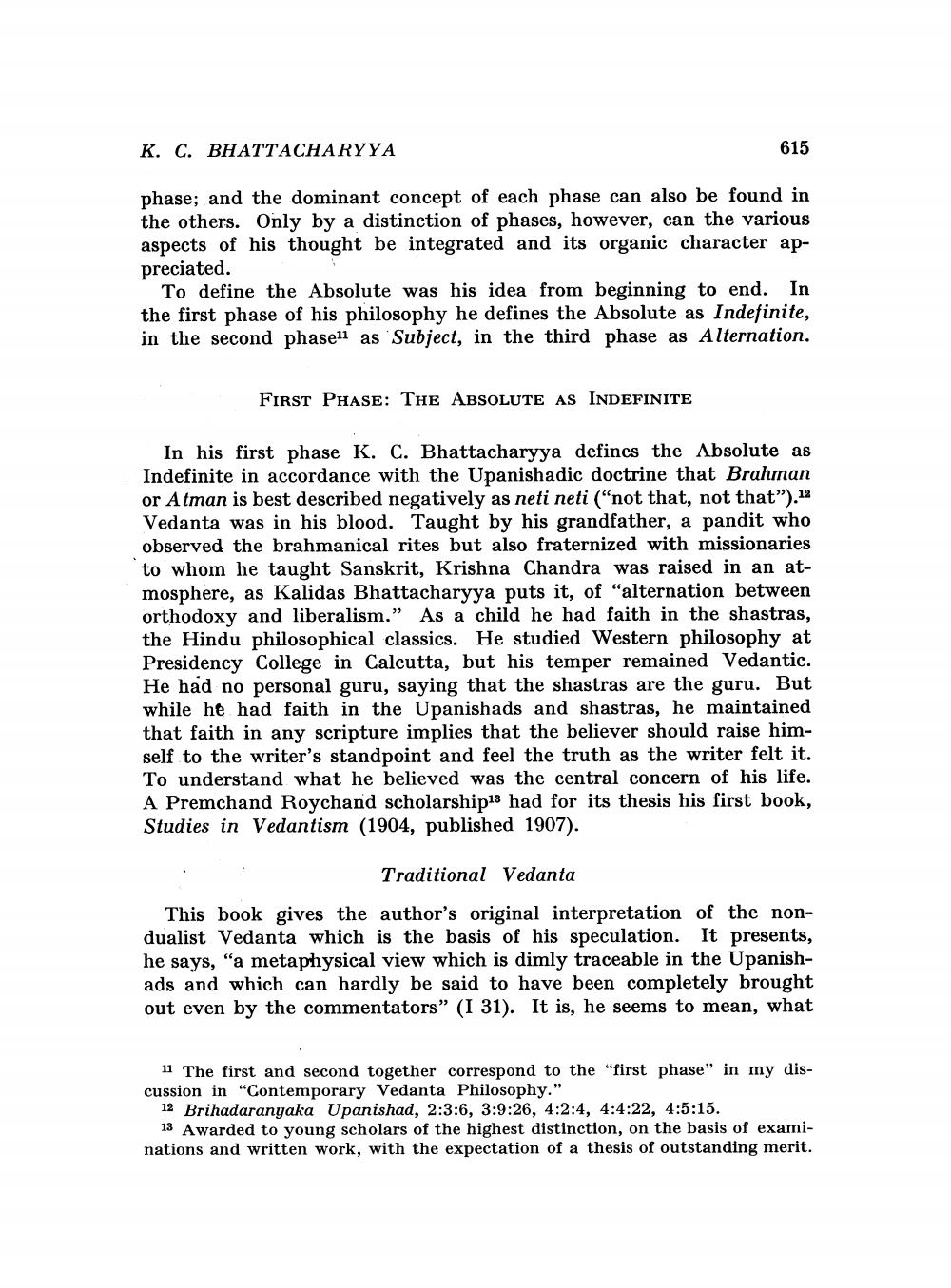Book Title: Search For Absolute In Neo Vedanta Author(s): George B Burch Publisher: George B Burch View full book textPage 5
________________ K. C. BHATTACHARYYA 615 phase; and the dominant concept of each phase can also be found in the others. Only by a distinction of phases, however, can the various aspects of his thought be integrated and its organic character appreciated. To define the Absolute was his idea from beginning to end. In the first phase of his philosophy he defines the Absolute as Indefinite, in the second phasell as Subject, in the third phase as Alternation. FIRST PHASE: THE ABSOLUTE AS INDEFINITE In his first phase K. C. Bhattacharyya defines the Absolute as Indefinite in accordance with the Upanishadic doctrine that Brahman or Atman is best described negatively as neti neti ("not that, not that”). 12 Vedanta was in his blood. Taught by his grandfather, a pandit who observed the brahmanical rites but also fraternized with missionaries to whom he taught Sanskrit, Krishna Chandra was raised in an atmosphere, as Kalidas Bhattacharyya puts it, of “alternation between orthodoxy and liberalism." As a child he had faith in the shastras, the Hindu philosophical classics. He studied Western philosophy at Presidency College in Calcutta, but his temper remained Vedantic. He had no personal guru, saying that the shastras are the guru. But while he had faith in the Upanishads and shastras, he maintained that faith in any scripture implies that the believer should raise himself to the writer's standpoint and feel the truth as the writer felt it. To understand what he believed was the central concern of his life. A Premchand Roychand scholarship13 had for its thesis his first book, Studies in Vedantism (1904, published 1907). Traditional Vedanta This book gives the author's original interpretation of the nondualist Vedanta which is the basis of his speculation. It presents, he says, "a metaphysical view which is dimly traceable in the Upanishads and which can hardly be said to have been completely brought out even by the commentators" (I 31). It is, he seems to mean, what 11 The first and second together correspond to the "first phase" in my discussion in "Contemporary Vedanta Philosophy." 12 Brihadaranyaka Upanishad, 2:3:6, 3:9:26, 4:2:4, 4:4:22, 4:5:15. 13 Awarded to young scholars of the highest distinction, on the basis of examinations and written work, with the expectation of a thesis of outstanding merit.Page Navigation
1 ... 3 4 5 6 7 8 9 10 11 12 13 14 15 16 17 18 19 20 21 22 23 24 25 26 27 28 29 30 31 32 33 34 35 36 37 38 39 40 41 42 43 44 45 46 47 48 49 50 51 52 ... 57
